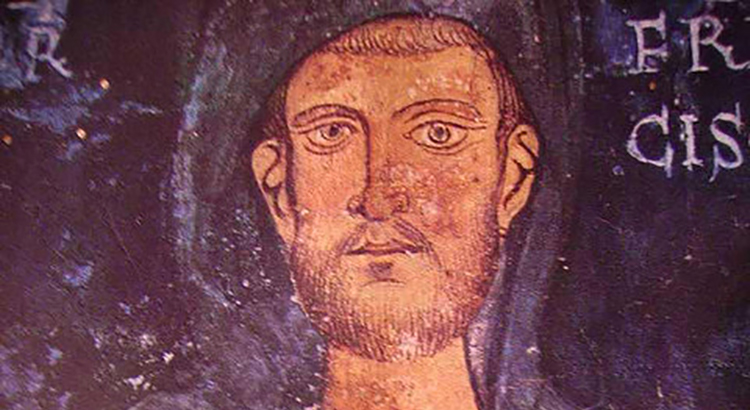Prayer for peace
The prayer for peace is held in the Basilica of Santa Maria in Trastevere.
Reading of the Word of God
Alleluia, alleluia, alleluia
This is the Gospel of the poor,
liberation for the imprisoned,
sight for the blind,
freedom for the oppressed.
Alleluia, alleluia, alleluia
Luke 18,35-43
Now it happened that as he drew near to Jericho there was a blind man sitting at the side of the road begging. When he heard the crowd going past he asked what it was all about, and they told him that Jesus the Nazarene was passing by. So he called out, 'Jesus, Son of David, have pity on me.' The people in front scolded him and told him to keep quiet, but he only shouted all the louder, 'Son of David, have pity on me.' Jesus stopped and ordered them to bring the man to him, and when he came up, asked him, 'What do you want me to do for you?' 'Sir,' he replied, 'let me see again.' Jesus said to him, 'Receive your sight. Your faith has saved you.' And instantly his sight returned and he followed him praising God, and all the people who saw it gave praise to God.
Alleluia, alleluia, alleluia
The Son of Man came to serve,
whoever wants to be great
should become servant of all.
Alleluia, alleluia, alleluia
We are approaching the end of the liturgical year. This evangelical passage is part of the eschatological discourse (that is, about the "ultimate reality") which takes up all of Mark chapter 13. Jesus has just left the temple with his disciples, Jesus goes toward the Mount of Olives from which the splendour of the temple could be admired. Looking at this incredible structure, the disciples are awestruck but, seeming to interrupt the disciples' amazement, Jesus tells them that "not one stone will be left here upon another" of this building. After speaking of the "great tribulation" of Jerusalem, Jesus announces that cosmic disturbances will follow and adds: "Then they will see the Son of Man coming in clouds' with great power and glory."
The Gospel reminds us that the "Son of Man" comes not in the weariness of our habits and he does not insert himself in the natural course of things. When he comes, he brings a radical change to the lives of men and women and of all creation. To express this profound transformationa sort of violent interruption of historyJesus revives the typical language of an apocalyptic tradition widely known during those times and speaks of cosmic events that will upset the order of nature. Jesus speaks of the "last days, but he says also that such upheavals will occur in "this generation." The "Day of the Lord" foreshadowed by Daniel and the other prophets bursts into every generation, and even more so into each day. Jesus says, "You know that he is near, at the very gates." This expression is used at other times in Scripture to urge believers to be ready to welcome the Lord who is coming. "Listen! I am standing at the door, knocking; if you hear my voice and open the door, I will come in to you and eat with you, and you with me" (Rev 3:20). At the doors of each day of our life, it is the Lord who knocks and today, Sunday in which we do the memorial of the poor, we remember that at our door there always Jesus in the flesh of the hungry, the foreigner, the sick, and the prisoner. He is the Lazarus covered with wounds who waits to be welcomed and from this welcoming depends the judgment of God who intends to transform the time in which we live.
The "end of the world" must come every day. Every day, we must put an end to both the small or big pieces of the world's evil and malevolence that people continue to build. Scripture invites us to keep the future towards which we are directed in front of our eyes: the end of the world is not a catastrophe, but will in fact establish the holy city, the Jerusalem that comes down from heaven. It is a city, that is, a concrete reality, not an abstract one, gathering all the people around their Lord. This is the goal of history. But this holy city must be planted in our daily life now so that it may grow and transform us into its likeness. This is not an easy and automatic craft, but the daily toil that every believer must fulfil, knowing that "Heaven and earth will pass away, but my words will not pass away."
